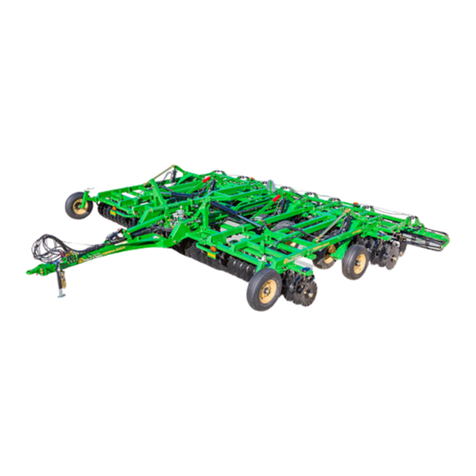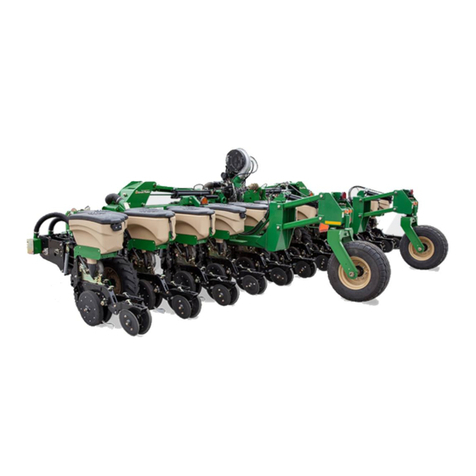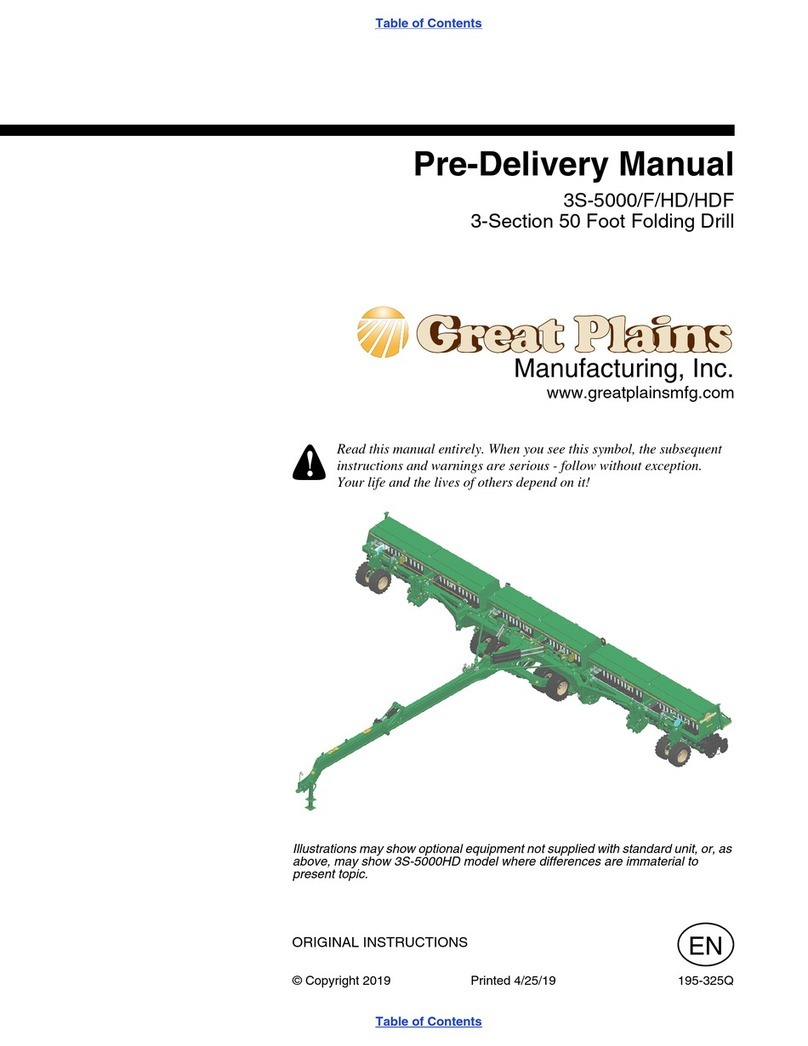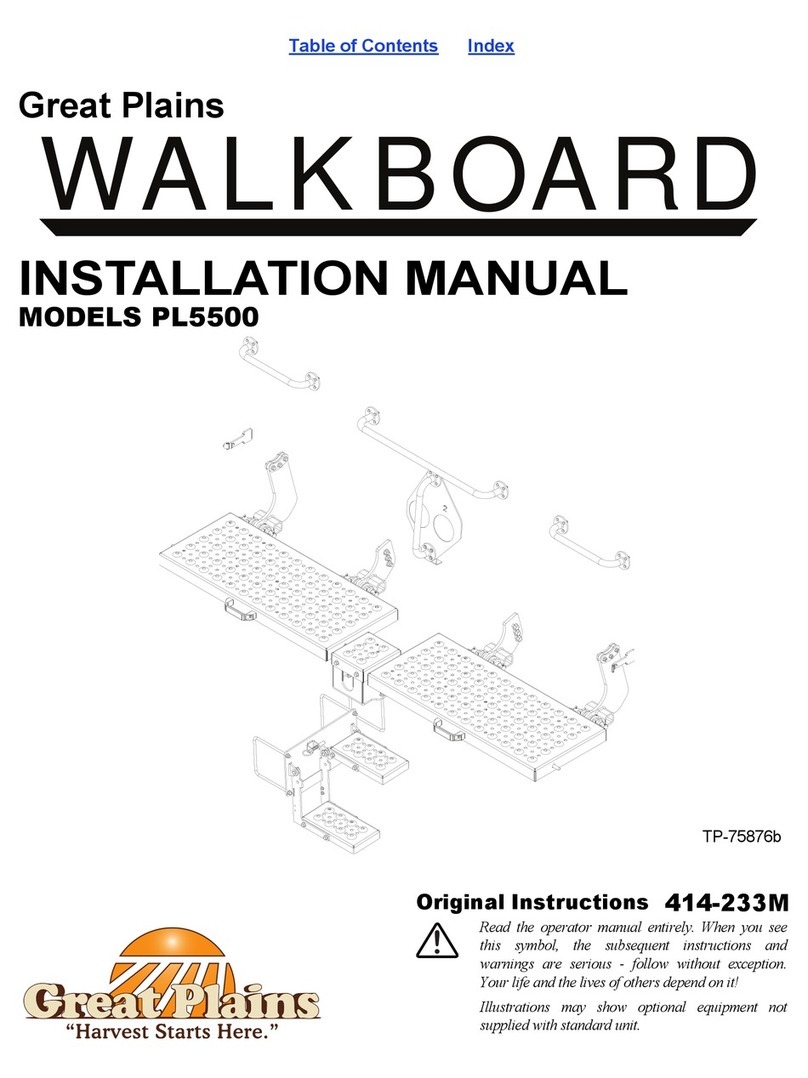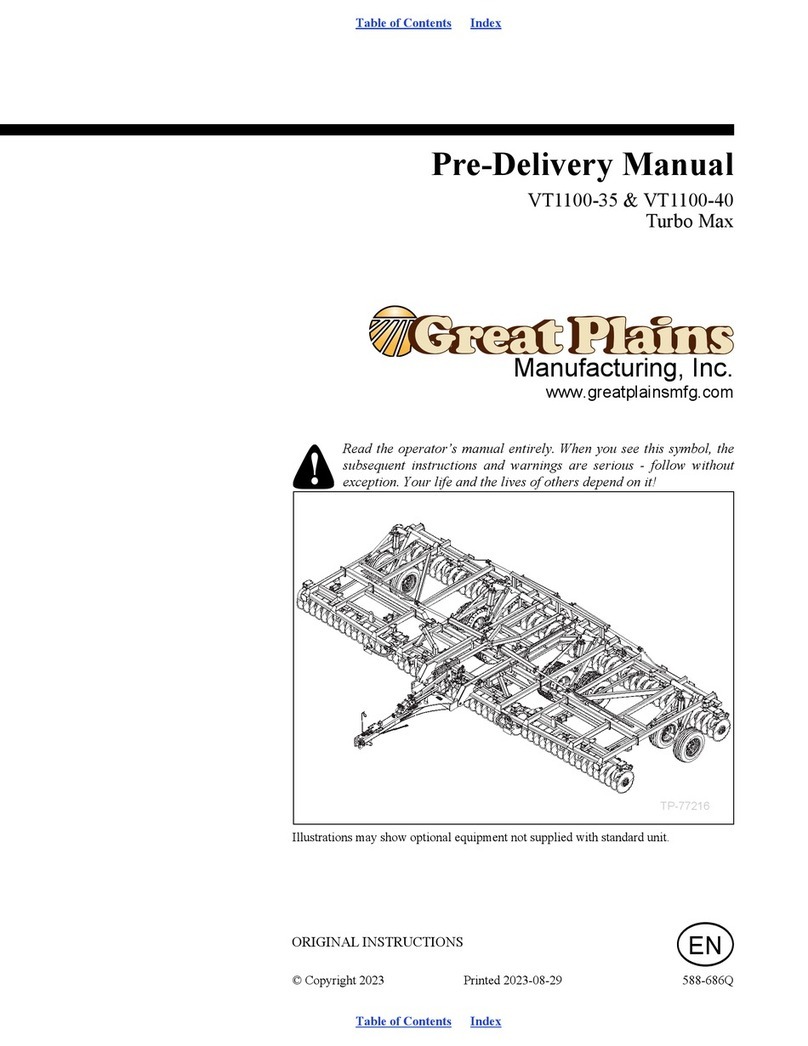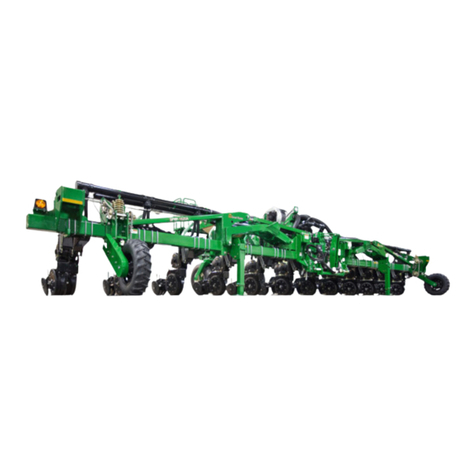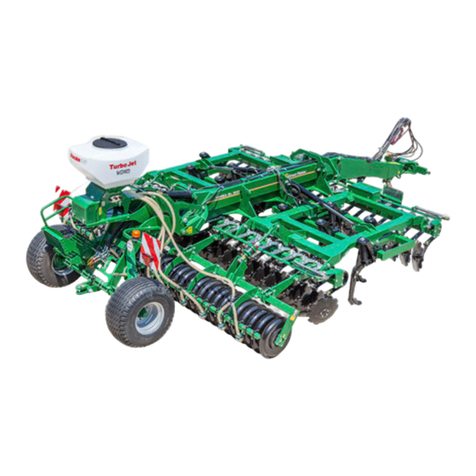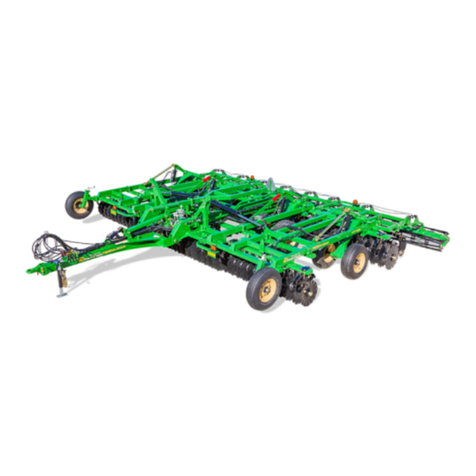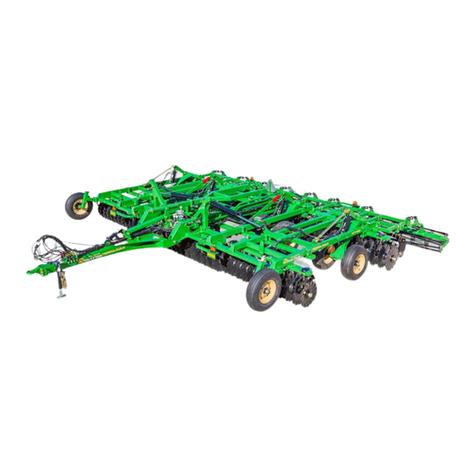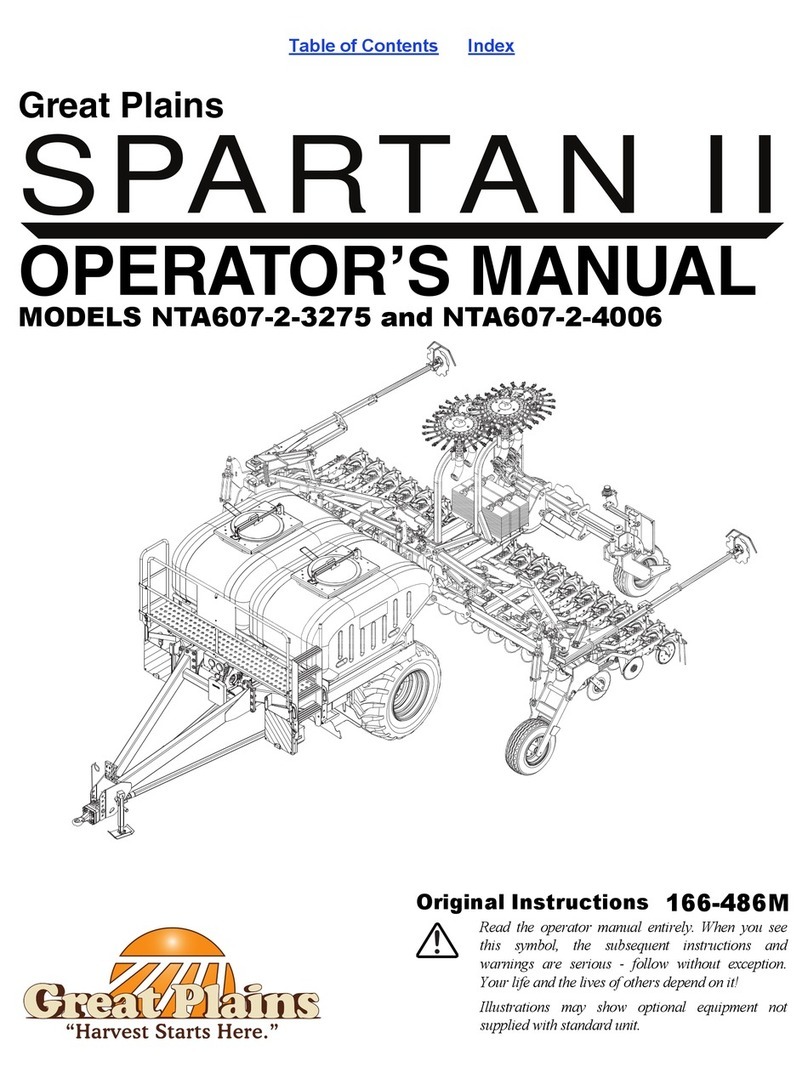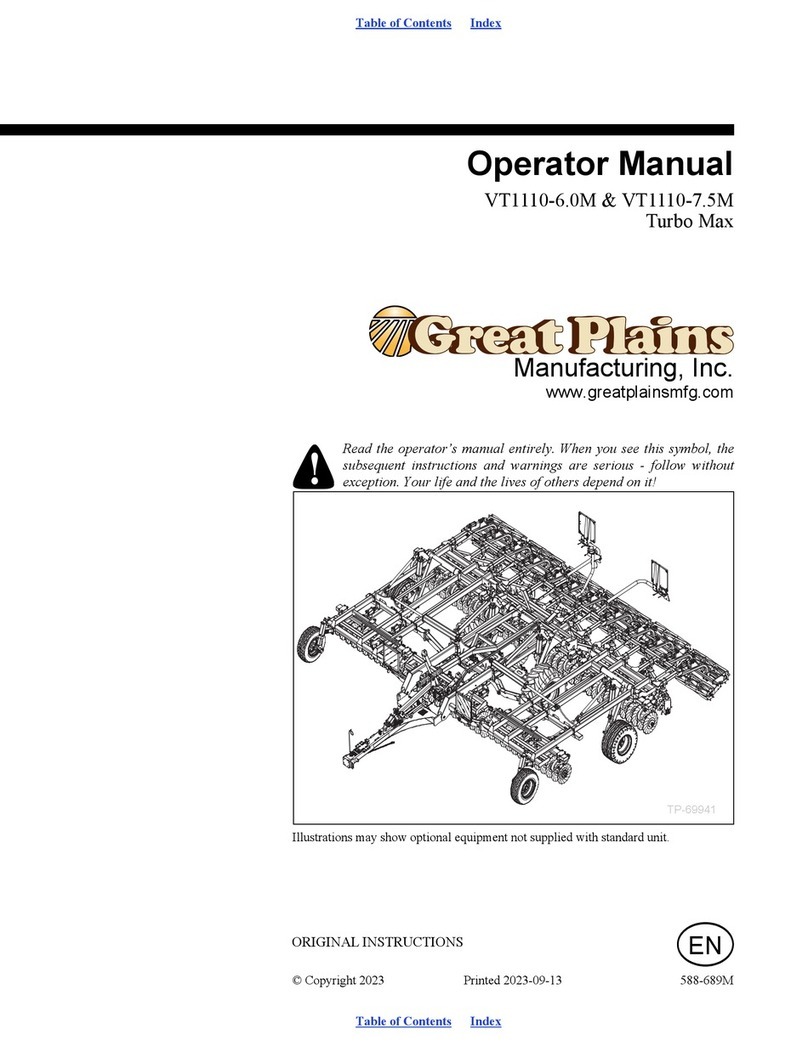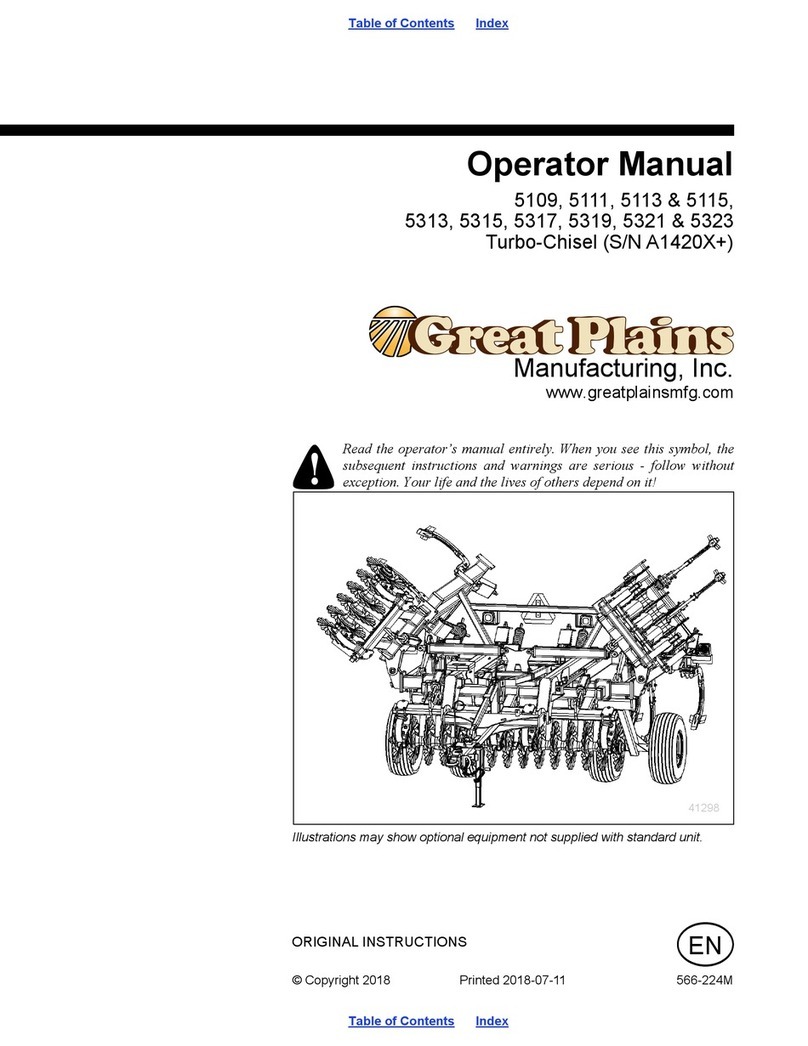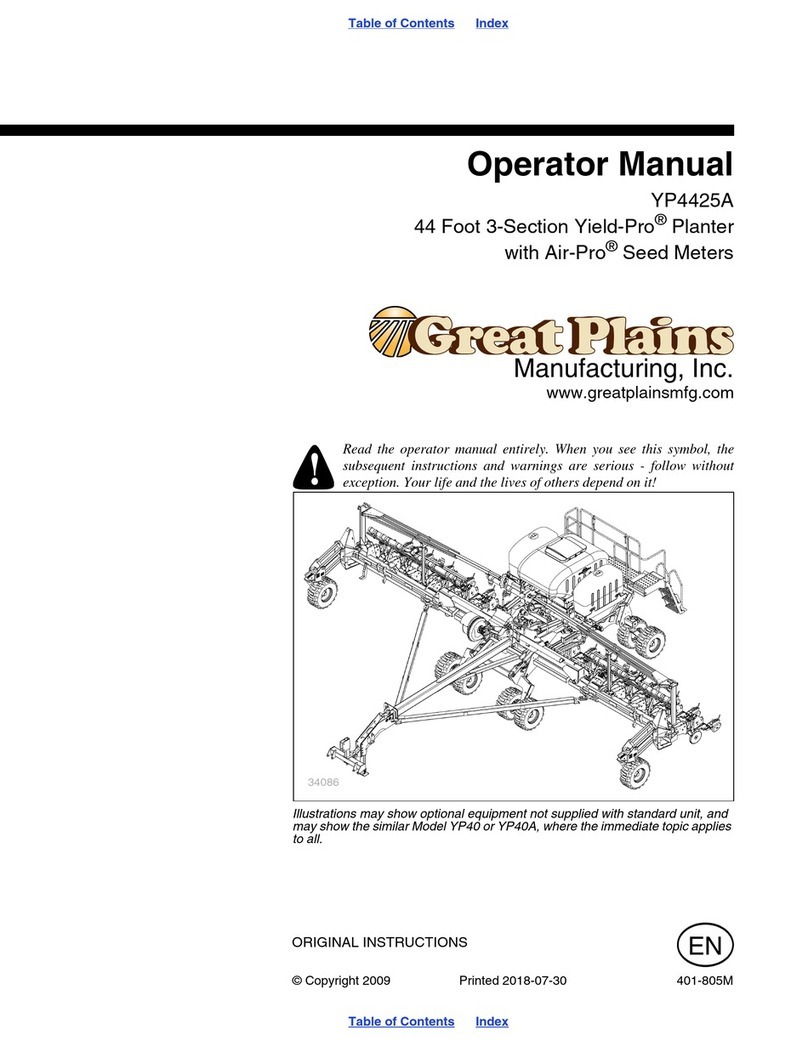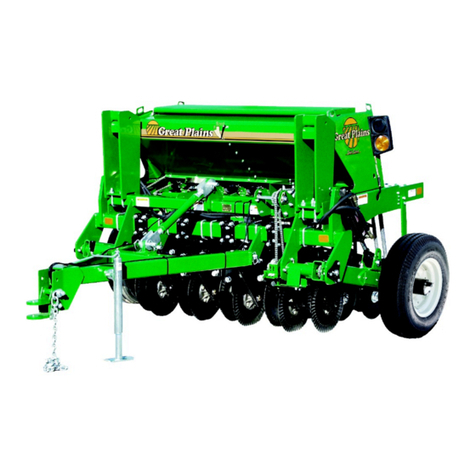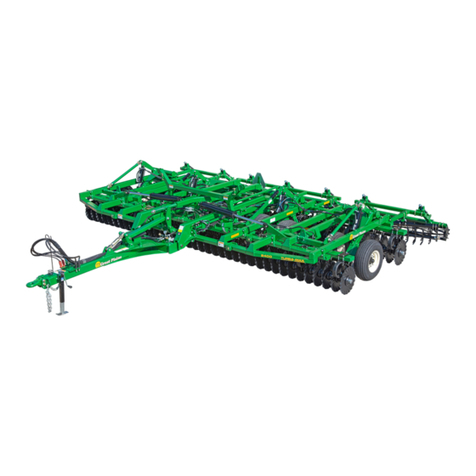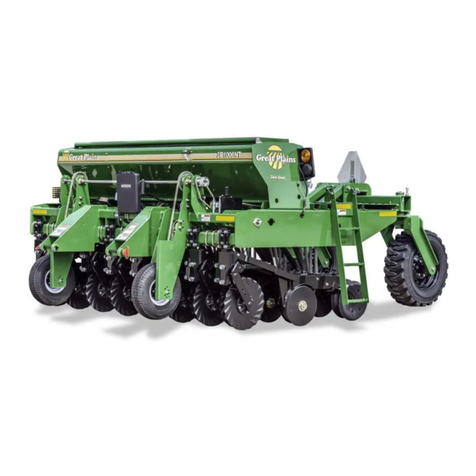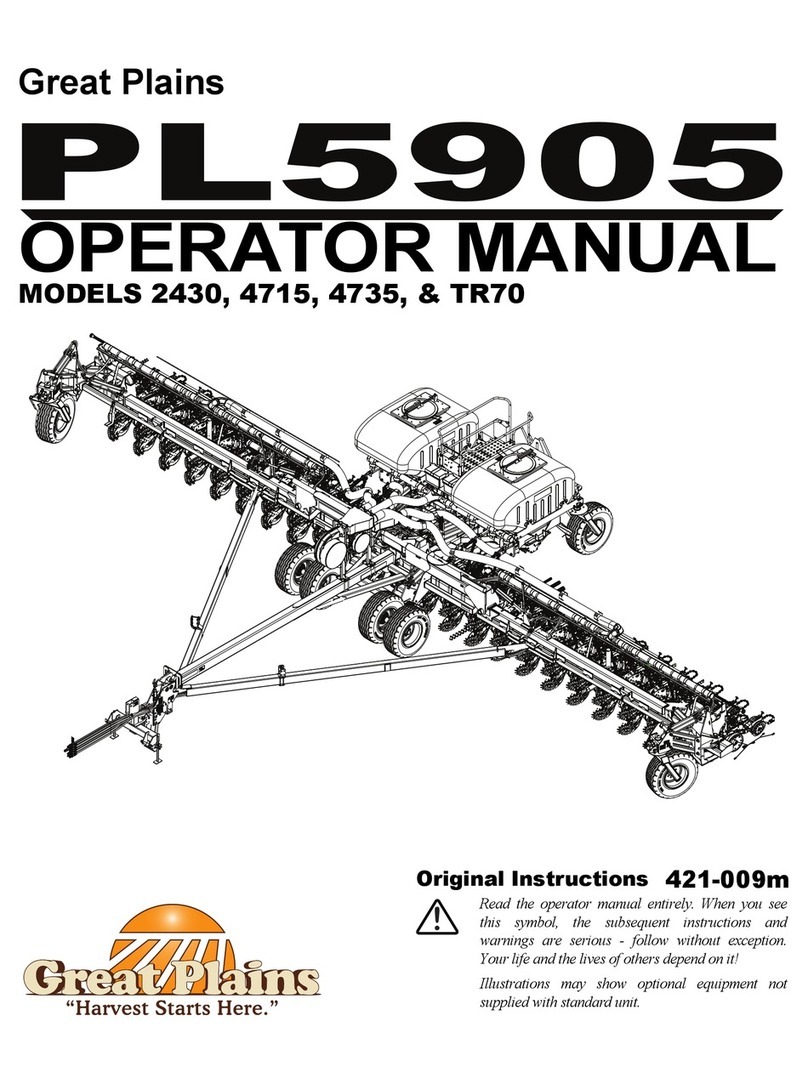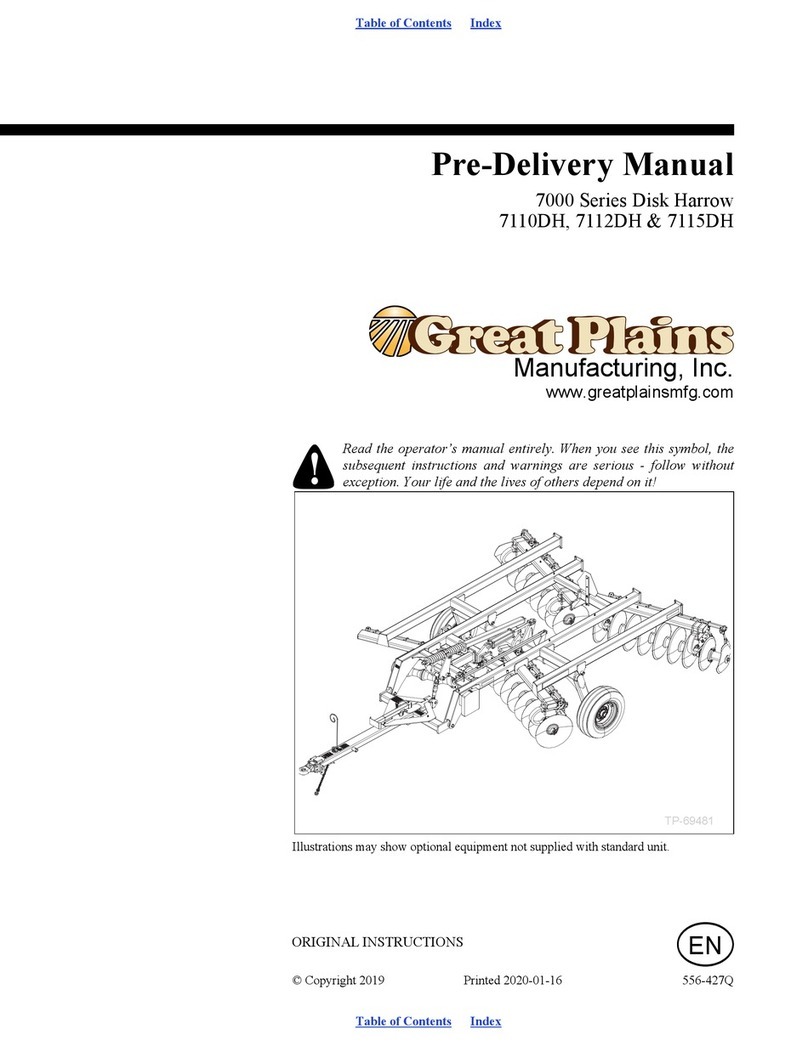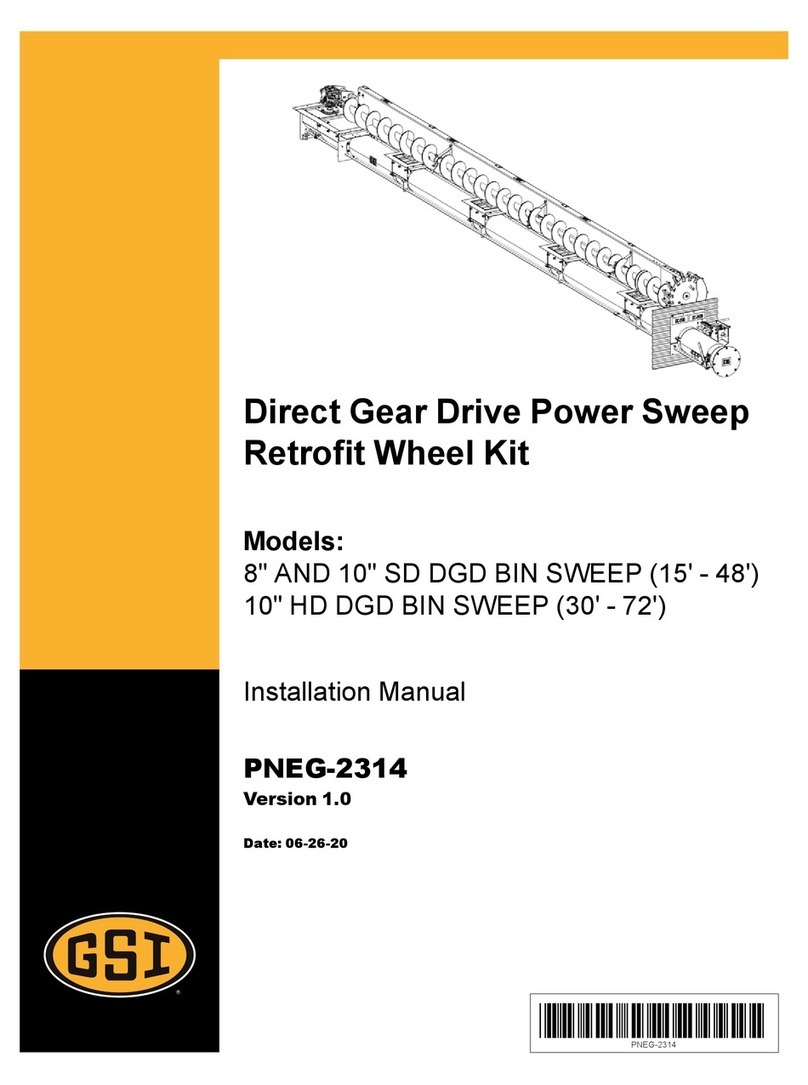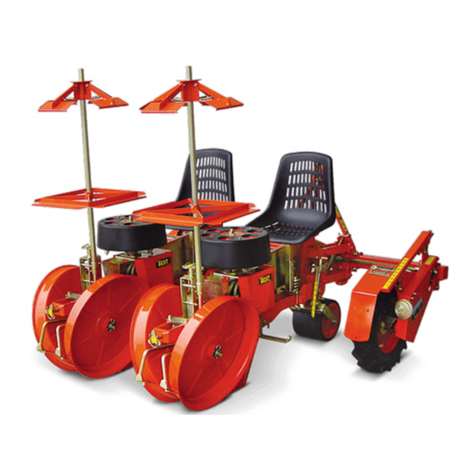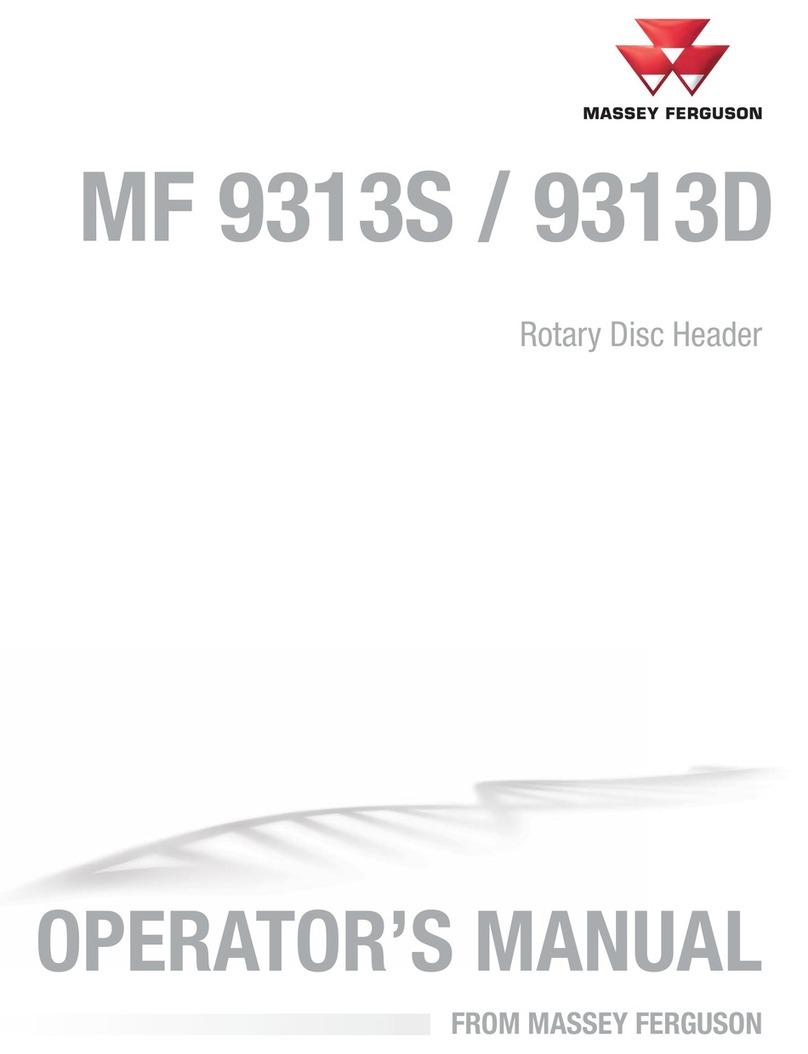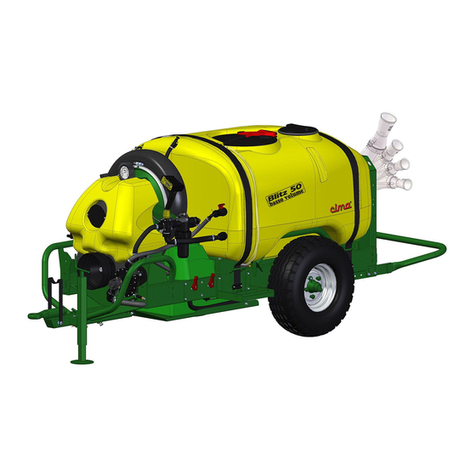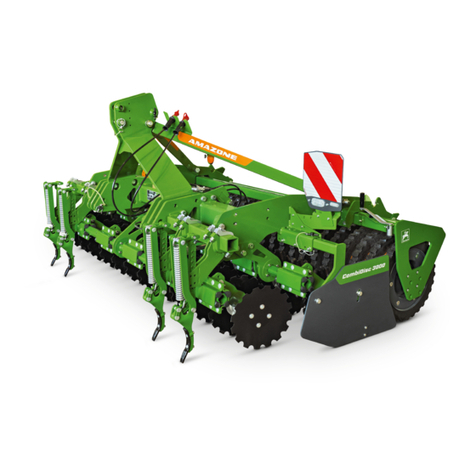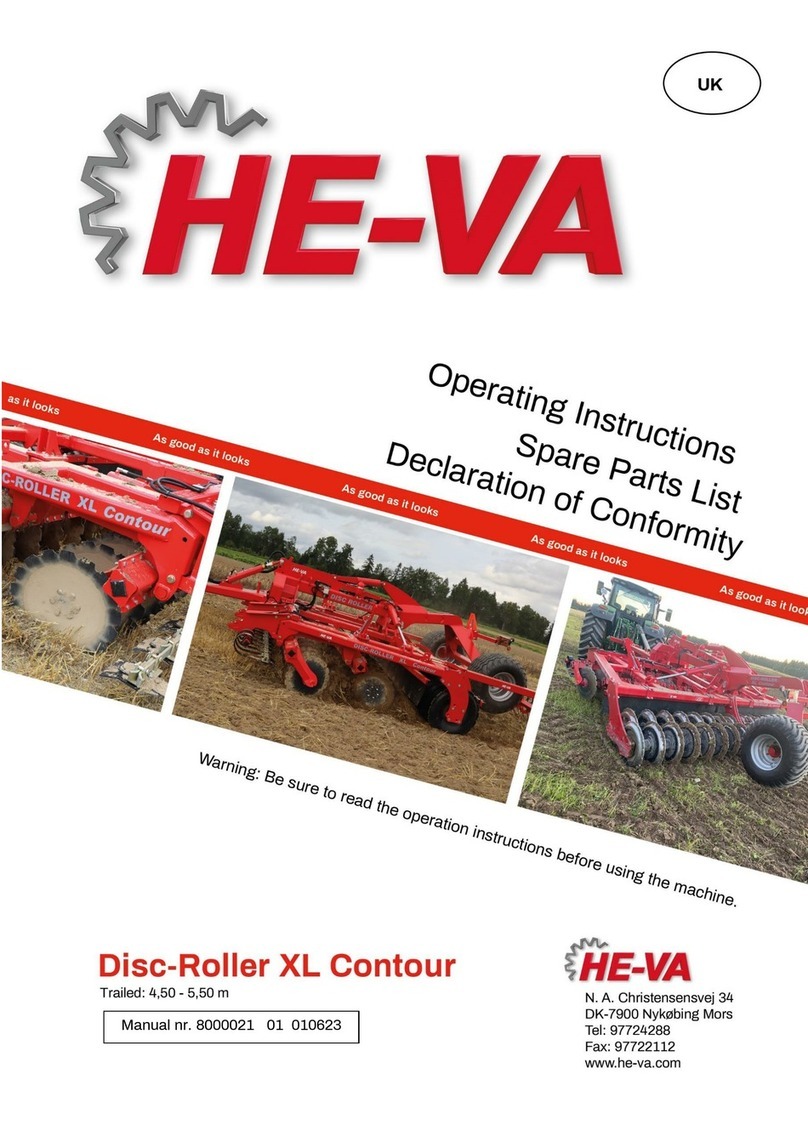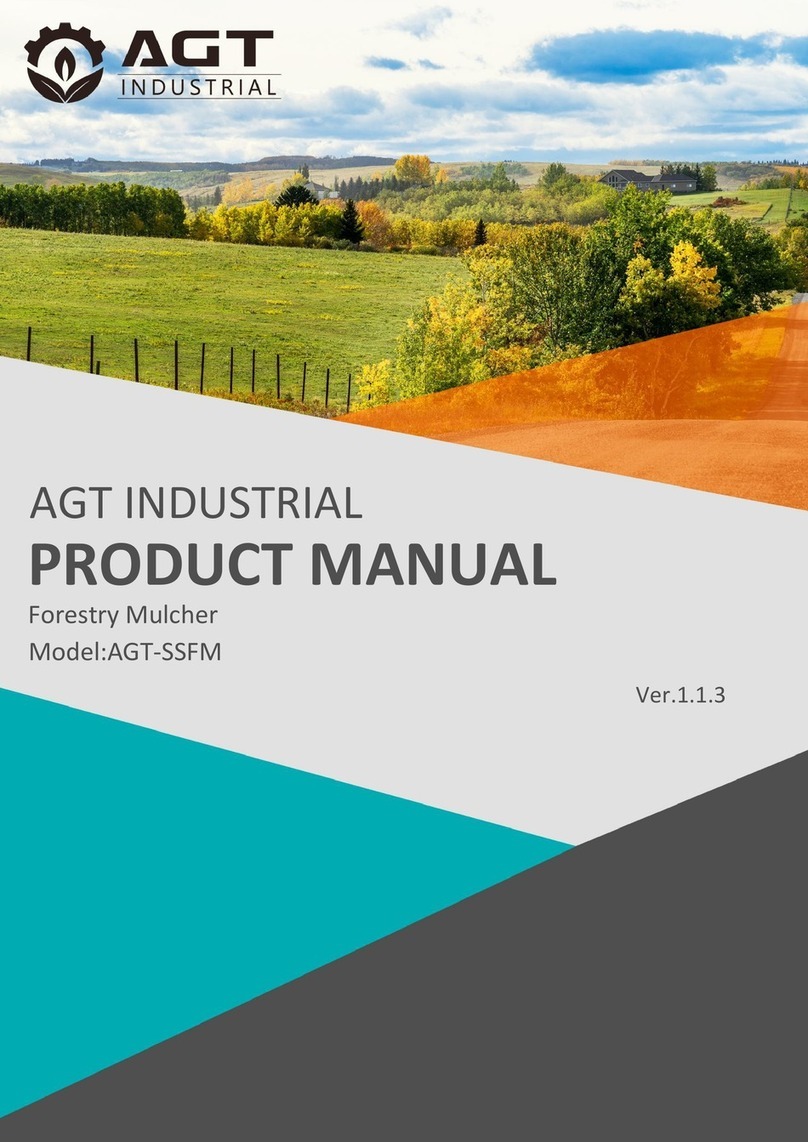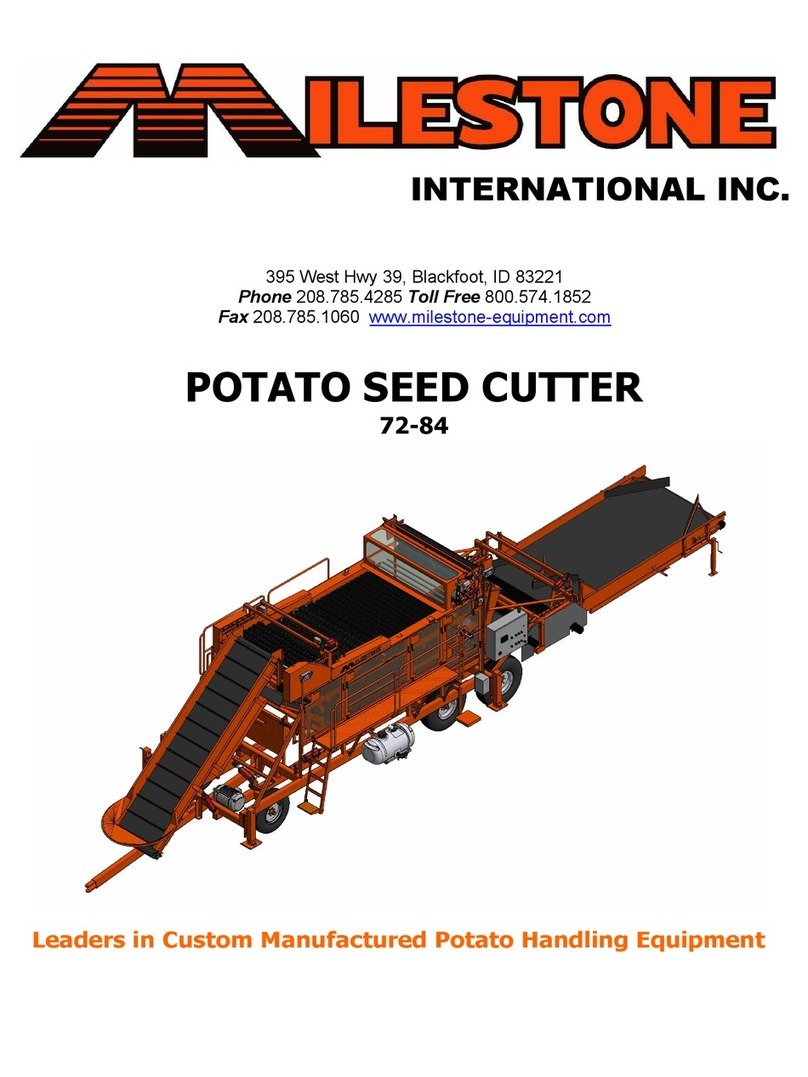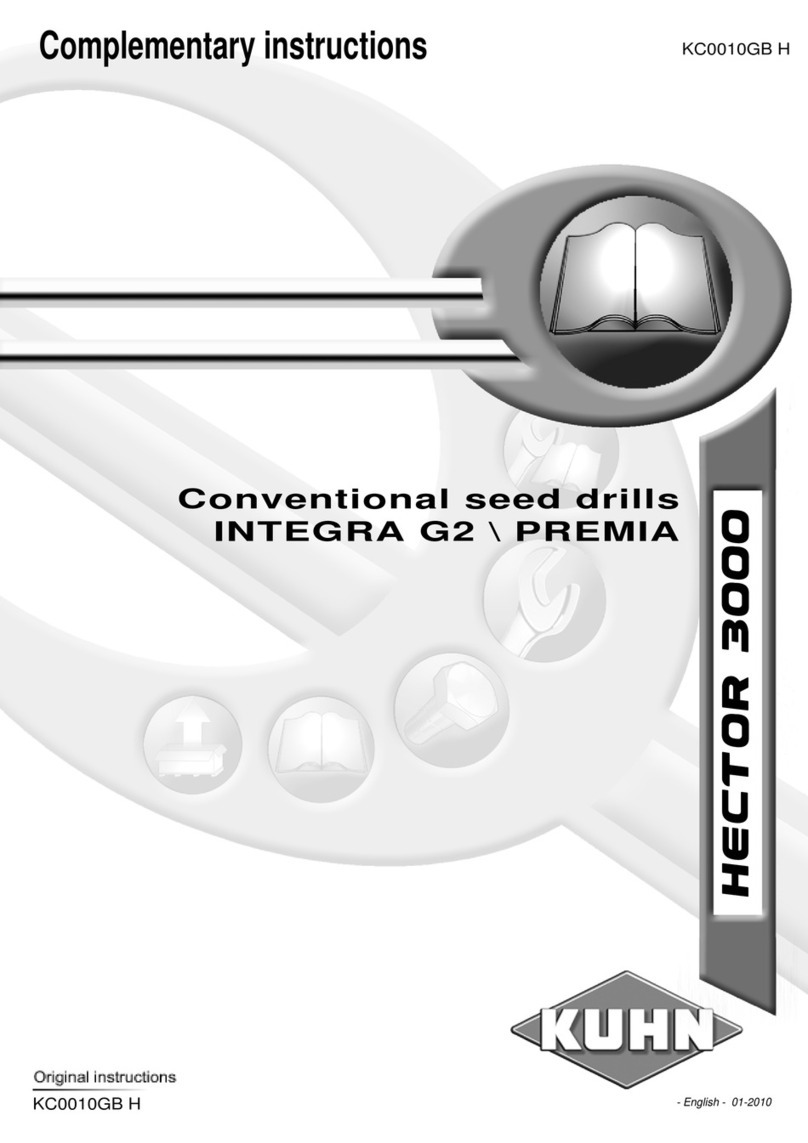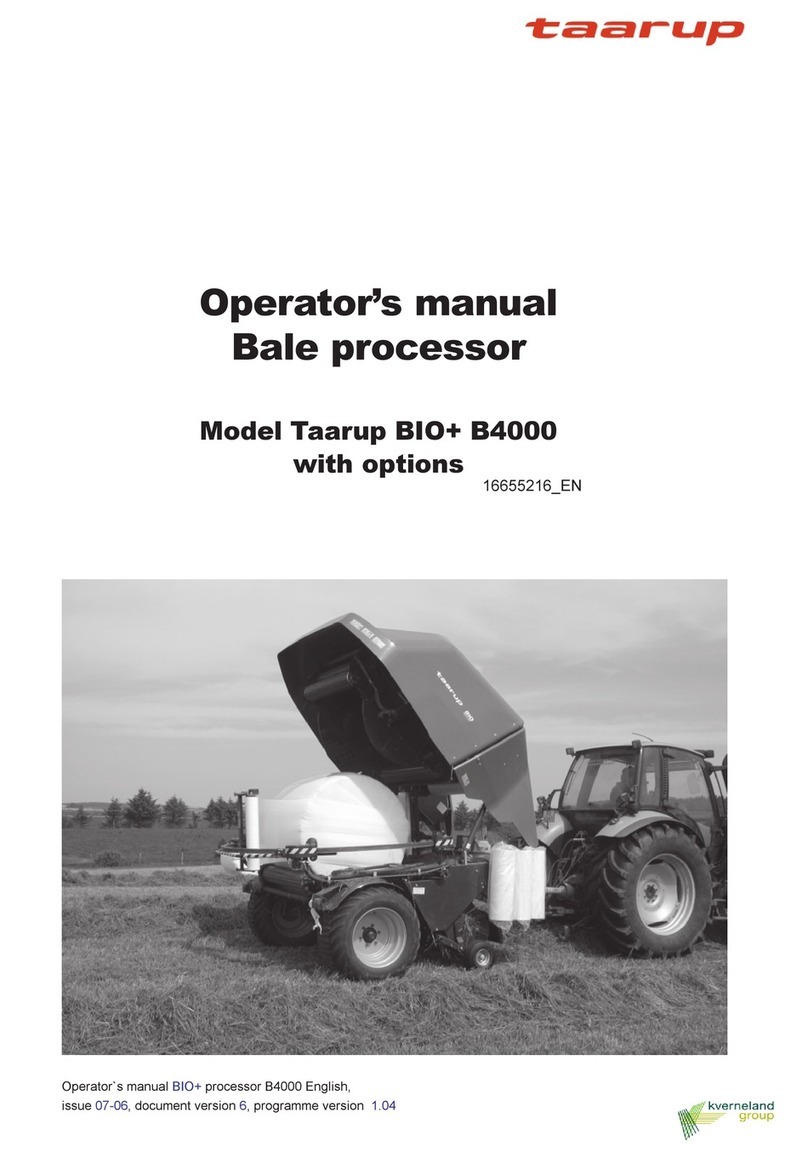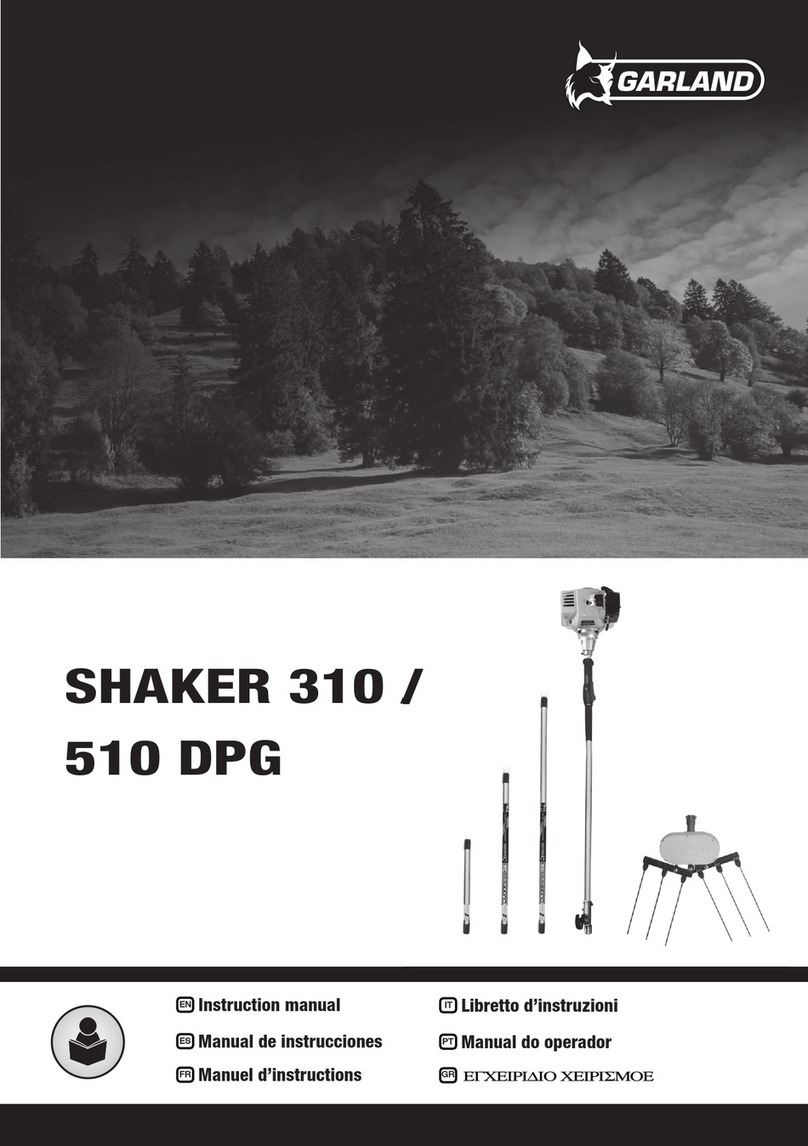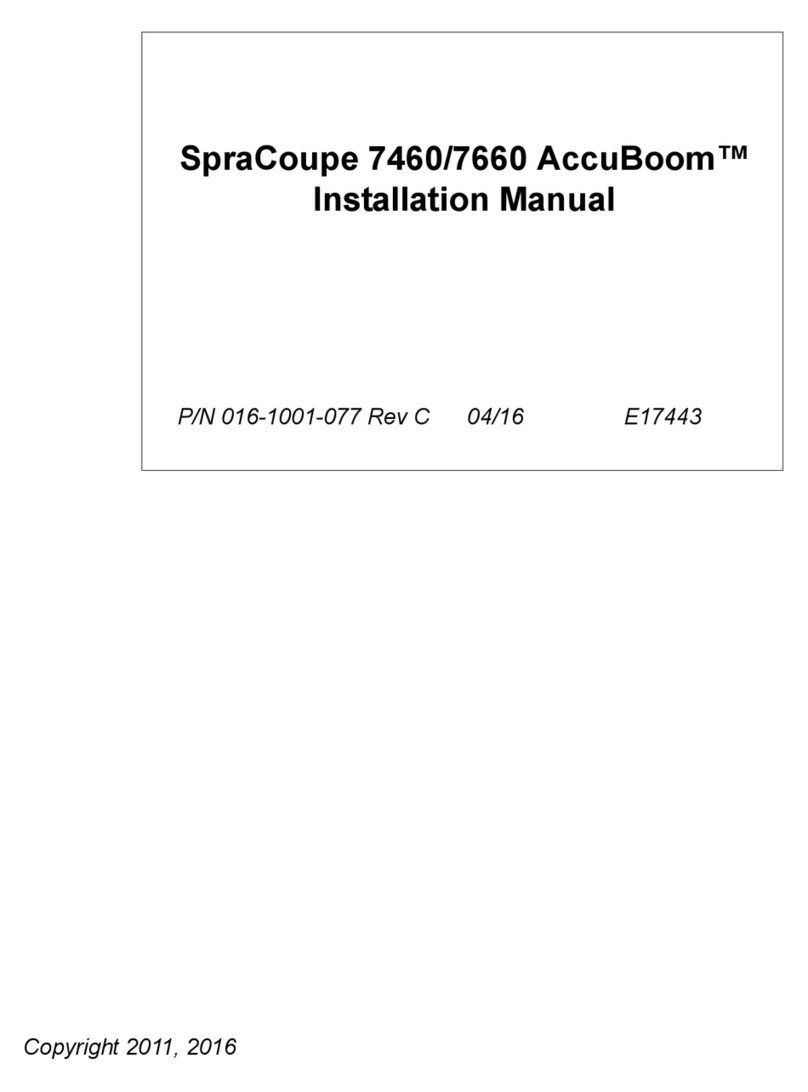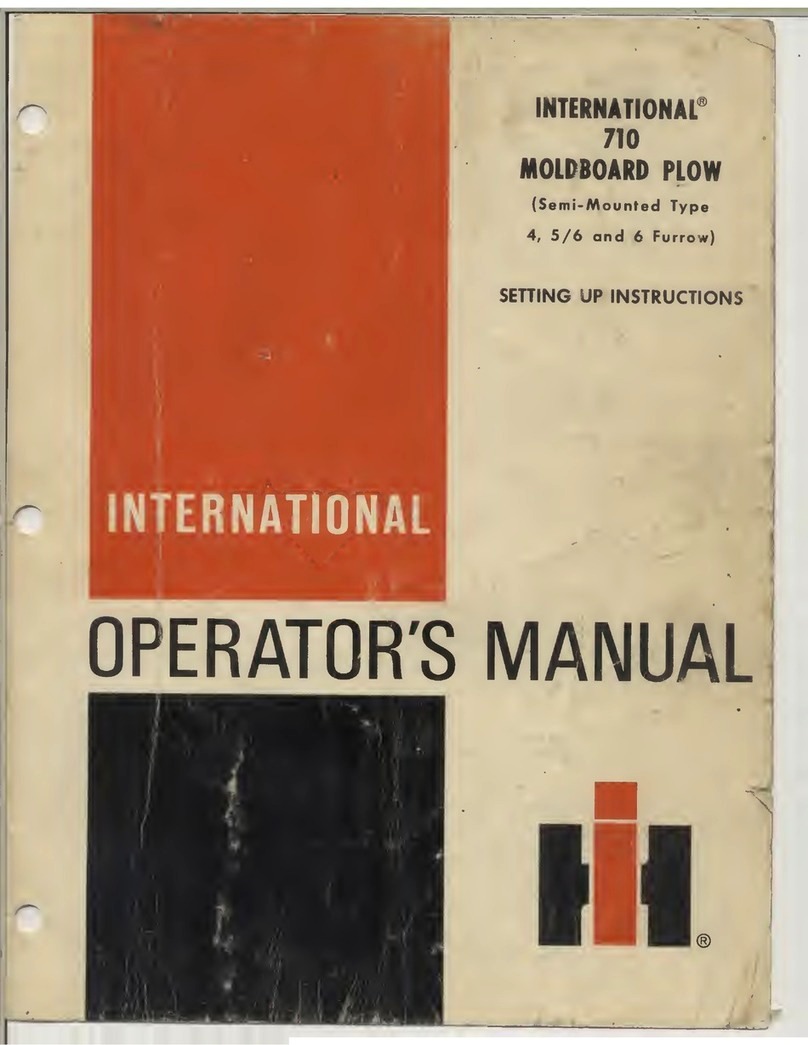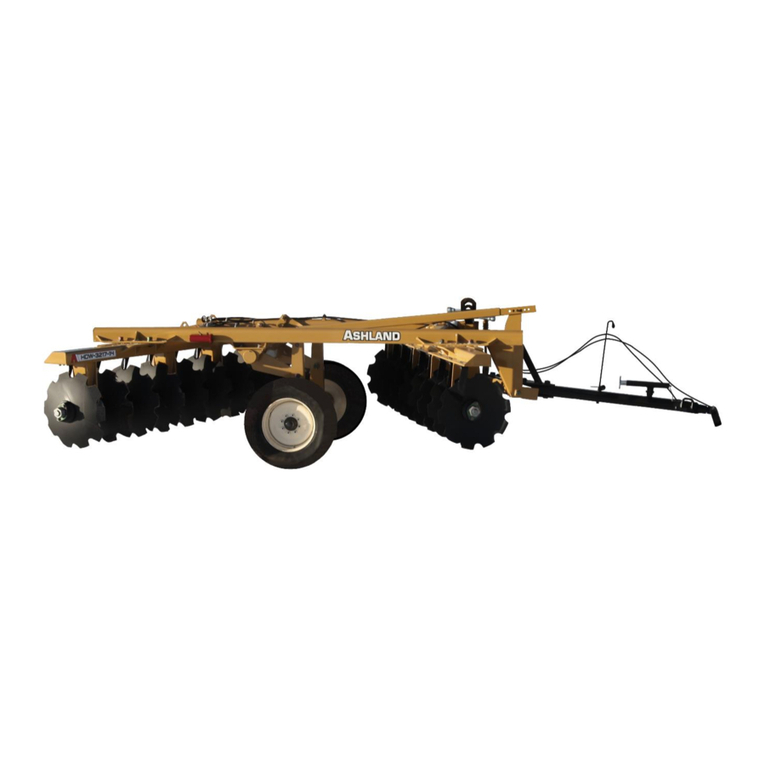
50 Foot 3-Section Drill Table of Contents Safety Information
Great Plains | 195-615Q | 12/02/2021 3
Machine Use
Operate Responsibly
Maintain attention on operation at all times to
avoid injury to yourself or others.
Do not operate machine while distracted by a
smart phone, tablet, or similar electronic device,
or while impaired by alcohol, medication, any
controlled substance, or while fatigued.
Do not ever allow passengers to ride on any part
of the machine at any time, for any reason.
Handle Hydraulics with Care
Keep clear of machine while hydraulics are in
use. Any failure in the hydraulic system can
cause machine parts to move or fall rapidly with a
great deal of force. Anyone struck, caught
between, or crushed beneath these parts can
suffer serious injury or even death.
A raised planter without cylinder locks installed or
without active hydraulic pressure will slowly lower
over time. Use tractor hydraulics to raise planter
only for brief periods, such as field turns and
cylinder lock installation.
Relieve hydraulic pressure and wait for all parts
to come to a complete stop before disconnecting
any hydraulic lines or performing any work on the
hydraulic system.
Do not have skin exposed when searching for
leaks in hydraulic lines. Use a piece of cardboard
or wood to locate leaks. If injured by escaping
hydraulic fluid, seek immediate medical attention.
Wear protective gloves and eye protection when
working on the machine’s hydraulic system.
Avoid Potential Collision Damage
Watch your surroundings at all times. Do not
operate with nearby bystanders or while anyone
makes adjustments or fills the machine.
Avoid contacting overhead obstructions such as
low bridges, overpasses, and power lines.
Do not operate near ditches, holes, steep slopes,
embankments, or other surfaces which may
collapse under the machine’s weight or tip the
machine over.
Chemicals and Waste
Agricultural chemicals can be dangerous. Improper
use can seriously injure persons, animals, plants, soil
and property.
Read chemical manufacturer’s instructions
carefully, and then take appropriate precautions
before use. In the absence of manufacturer
instructions, chemical labels will inform you of
any potential hazards and their severity.
Wear protective clothing and as well as any other
personal protective equipment.
Wash hands and face before eating after working
with chemicals. Shower as soon as application is
completed for the day.
Apply only with acceptable wind conditions.
Make sure wind drift of chemicals will not affect
any surrounding land, people or animals.
Dispose of unused chemicals and chemical
waste as specified by the manufacturer. Observe
all the local ordinances and regulations in your
area.
Dispose of Waste Properly
Dispose of waste properly to avoid threatening
the environment and ecology. Potential harmful
waste includes oil, fuel, filters, and batteries.
Use a leak-proof container for draining fluids. Do
not use a food or beverage container that may be
mistaken for a consumable product.
Do not drain or pour waste onto the ground,
down a drain, or into any water source.
Contact your local environmental or recycling
center for the proper way to recycle or dispose of
waste.
